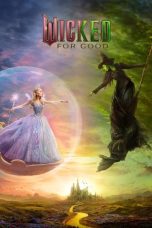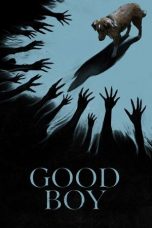Rebecca (2020) Movie Review – Where to Watch Online
Rebecca (2020) is a modern adaptation of Daphne du Maurier’s classic 1938 gothic novel, brought to life by director Ben Wheatley. Starring Lily James, Armie Hammer, and Kristin Scott Thomas, the film brings the haunting story of jealousy, obsession, and identity back to the screen, following in the footsteps of Alfred Hitchcock’s Oscar-winning 1940 adaptation. This new version attempts to reintroduce the classic story to a contemporary audience with a visually sumptuous yet dramatically uneven take. In this review, we’ll discuss the plot, performances, and streaming options for Rebecca in the U.S.
Plot Summary: A Tale of Haunting Shadows and Hidden Secrets
Rebecca follows the journey of a young, unnamed woman (Lily James), who, while working as a companion to an older wealthy lady, meets and falls in love with the dashing widower Maxim de Winter (Armie Hammer) during a trip to Monte Carlo. After a whirlwind romance, Maxim proposes, and the new Mrs. de Winter soon finds herself transplanted from the sun-drenched streets of the French Riviera to the foreboding, isolated Manderley estate in England.
However, upon arriving at Manderley, the new Mrs. de Winter finds herself living in the shadow of Maxim’s first wife, Rebecca. Though Rebecca is long deceased, her presence still looms large over the estate, particularly through the housekeeper, Mrs. Danvers (Kristin Scott Thomas), who adored Rebecca and is openly hostile to her new mistress. As the new Mrs. de Winter struggles to navigate the haunting atmosphere of Manderley and her strained relationship with Maxim, she begins to unravel the secrets surrounding Rebecca’s mysterious death.
The film weaves together elements of psychological thriller, romance, and mystery as the young bride battles to claim her own identity and uncover the truth about her predecessor.
Lily James and Armie Hammer’s Performances
Lily James, known for her roles in Cinderella and Baby Driver, brings a wide-eyed innocence to the role of the new Mrs. de Winter. Her character’s transformation from a shy, insecure woman into someone determined to uncover the truth about Rebecca is at the heart of the film. While James gives a solid performance, her character lacks the sharpness and depth found in the original novel and previous adaptations. Her portrayal of insecurity and naiveté works well in the first half, but as the film shifts into darker territory, her character’s development feels somewhat rushed and lacking in emotional weight.
Armie Hammer, as the brooding Maxim de Winter, offers a more polished and modern version of the character. However, Hammer’s Maxim lacks the tortured complexity and moral ambiguity that makes the character so fascinating in the novel and Hitchcock’s adaptation. His charm and good looks work well for the romantic aspect of the film, but the underlying darkness and secrets Maxim carries don’t fully come across, which dilutes the psychological tension in the story.
The true standout performance comes from Kristin Scott Thomas as the sinister Mrs. Danvers. Her portrayal of the obsessively loyal and manipulative housekeeper adds the chilling atmosphere that the story demands. Thomas delivers a masterclass in understated menace, making Mrs. Danvers both a tragic and terrifying figure. She brings a sense of haunting obsession that drives much of the suspense in the film, keeping the audience on edge.
A Visually Stunning Adaptation
Visually, Rebecca is stunning. The film’s cinematography, by Laurie Rose, captures the lavish elegance of the upper-class lifestyle, from the sun-soaked beaches of the French Riviera to the gloomy, sprawling Manderley estate. The sharp contrast between the bright, romantic first act in Monte Carlo and the dark, gothic atmosphere of Manderley helps set the tone for the story’s shift from romance to psychological thriller. The grand interiors of Manderley, with its dark wood paneling and ominous hallways, are beautifully shot, evoking the eerie, haunting presence of Rebecca in every corner.
The costumes, designed by Julian Day, further add to the film’s visual appeal. From the chic outfits worn by the characters in Monte Carlo to the gothic, somber styles at Manderley, the costumes play a significant role in reflecting the personalities and emotional states of the characters, particularly in highlighting the contrast between the new Mrs. de Winter’s innocence and Rebecca’s glamour and sophistication.
However, while the film succeeds on a visual level, its narrative and tone suffer from uneven pacing. The first half feels like a romantic drama, but as the mystery of Rebecca unfolds, the film shifts into darker territory. This tonal imbalance creates an awkward transition, especially for viewers unfamiliar with the story. The film also struggles to build the slow-burning tension that is a hallmark of the original story, which may leave fans of the novel wanting more.
Themes of Identity, Jealousy, and Feminine Power
At its core, Rebecca is a story about identity, jealousy, and the struggle for self-worth. The new Mrs. de Winter’s journey is one of a woman battling her own insecurities as she lives in the shadow of the beautiful, confident, and seemingly perfect Rebecca. The ghost of Rebecca represents the pressure of societal expectations, the idealized version of femininity that the protagonist can never live up to.
The power dynamics between Mrs. Danvers, the new Mrs. de Winter, and Rebecca are central to the film’s exploration of feminine power. Mrs. Danvers idolizes Rebecca, holding her up as the ultimate example of womanhood, while the new Mrs. de Winter feels constantly compared to her predecessor. The film’s climax, when the new Mrs. de Winter finally confronts the specter of Rebecca and asserts her own identity, reflects a larger struggle for women to break free from the expectations placed on them by others.
However, the film doesn’t delve as deeply into these themes as it could have, leaving much of the psychological complexity of the characters and their relationships underdeveloped.
Critical Reception: Mixed Reviews
Rebecca (2020) received mixed reviews from both critics and audiences. While the film was praised for its visual style and Kristin Scott Thomas’s performance as Mrs. Danvers, it was criticized for lacking the tension, suspense, and depth of the source material. Some viewers found the film to be more of a romantic drama than a gothic thriller, with the psychological elements of the story feeling diluted in comparison to Hitchcock’s adaptation.
Fans of the original novel and the 1940 film may find this version to be a visually appealing but ultimately shallow take on the story. However, for viewers who are new to the story, Rebecca offers an engaging, if imperfect, introduction to the world of Manderley and its ghostly past.
Streaming Services: Where to Watch Rebecca Online
As of 2024, Rebecca (2020) is available to stream on the following platforms in the U.S.:
Streaming Platforms
- Netflix
- Rebecca was produced as a Netflix Original, so it is available for streaming exclusively on Netflix. Subscribers can watch the film in HD or 4K, depending on their subscription plan.
Rental and Purchase Options
Since Rebecca is a Netflix Original, it is not available for rental or purchase on platforms like Amazon Prime, Google Play, or Apple TV+. Netflix is the only way to watch the film at this time.
Conclusion: A Stylish but Flawed Adaptation
Rebecca (2020) offers a visually striking and modernized adaptation of Daphne du Maurier’s timeless novel. While it succeeds in capturing the gothic atmosphere and lavish style of the story, the film falls short in terms of building suspense and emotional depth, particularly when compared to previous adaptations. With standout performances from Kristin Scott Thomas and solid work by Lily James and Armie Hammer, Rebecca is still worth watching for fans of gothic romance and visually-driven storytelling.
However, those looking for a deeper, more psychologically complex take on the story may be left wanting more. Whether you’re a fan of the novel or new to the story, Rebecca on Netflix is an accessible way to explore this iconic tale of jealousy, identity, and power.
















